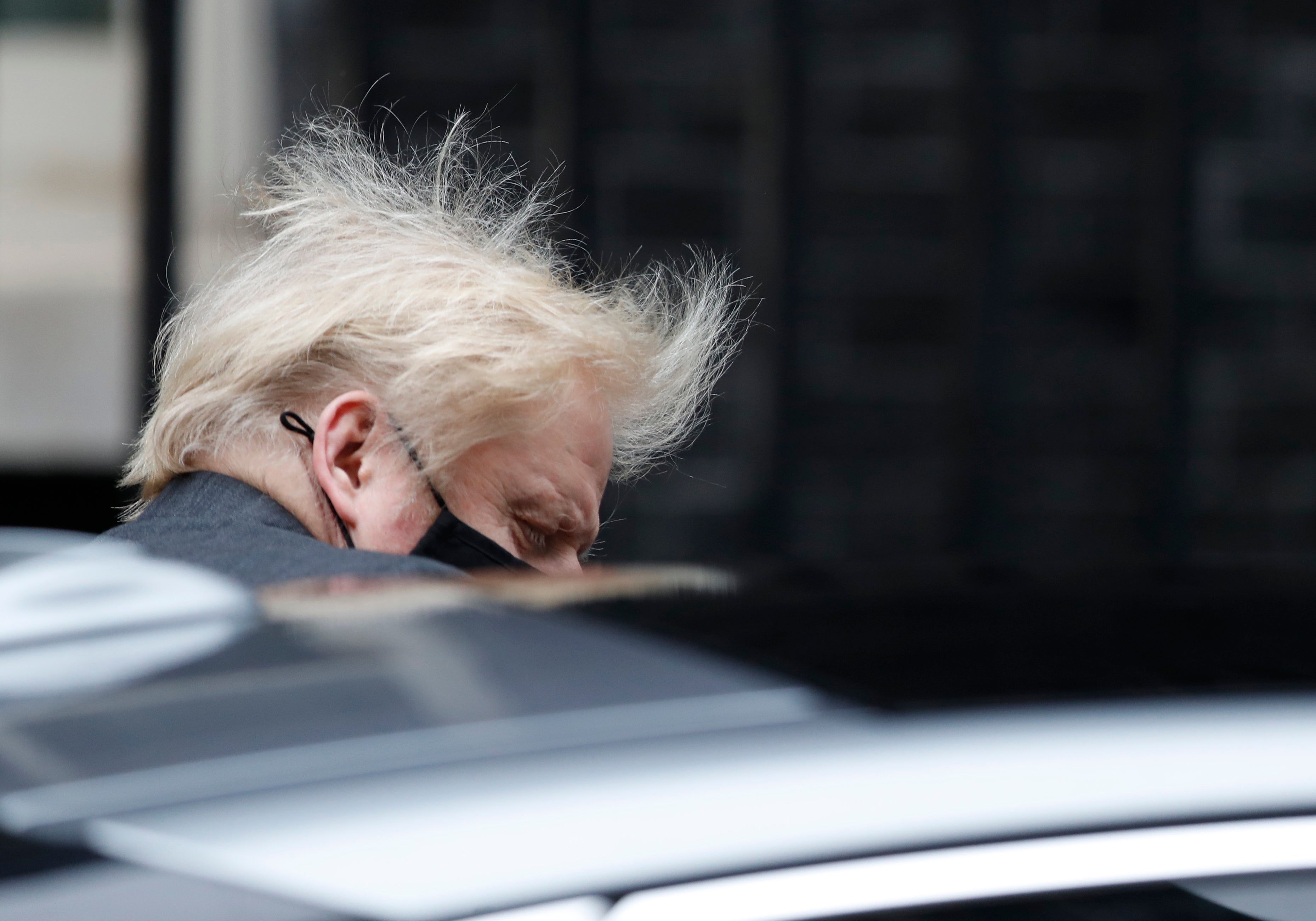UK's Johnson hopes schools in England can reopen on March 8
British Prime Minister Boris Johnson has indicated that the coronavirus lockdown in England will remain in place until at least March 8 as he ruled out any imminent return to school for most students

Your support helps us to tell the story
From reproductive rights to climate change to Big Tech, The Independent is on the ground when the story is developing. Whether it's investigating the financials of Elon Musk's pro-Trump PAC or producing our latest documentary, 'The A Word', which shines a light on the American women fighting for reproductive rights, we know how important it is to parse out the facts from the messaging.
At such a critical moment in US history, we need reporters on the ground. Your donation allows us to keep sending journalists to speak to both sides of the story.
The Independent is trusted by Americans across the entire political spectrum. And unlike many other quality news outlets, we choose not to lock Americans out of our reporting and analysis with paywalls. We believe quality journalism should be available to everyone, paid for by those who can afford it.
Your support makes all the difference.British Prime Minister Boris Johnson indicated Wednesday that the coronavirus lockdown in England will remain in place until at least March 8 as he ruled out any imminent return to school for most students.
In a statement to lawmakers, Johnson also confirmed new restrictions for travelers arriving in England from countries deemed to be high-risk. He said the U.K. remains in a “perilous situation” with more than 37,000 patients hospitalized with COVID-19, nearly double the number during the country's previous peak in April.
While dashing any hopes that students would return to classrooms after a mid-February school break, Johnson said the March 8 aspiration is based on progress on the vaccination front.
“The first sign of normality beginning to return should be pupils going back to their classrooms," he said.
England’s schools are currently closed to all students bar those deemed to be vulnerable and children of key workers, such as doctors and delivery drivers. Schools are also closed in the other nations of the U.K. — Scotland, Wales and Northern Ireland.
Johnson said he hoped that by mid-February, much more will be known about the effect of vaccines in preventing hospital admissions and deaths, and the government plans to publish a plan for the “gradual and phased” easing of the lockdown in the week commencing Feb. 22.
“If we achieve our target of vaccinating everyone in the four most vulnerable groups with their first dose by Feb. 15, and every passing day sees more progress towards that goal, then those groups will have developed immunity from the virus about three weeks later, that is, by March 8," Johnson said.
Because the government has consistently said schools would be the first part of society to reopen from lockdown, Johnson's announcement clearly points to shops selling non-essential items and pubs and restaurants remaining closed for even longer.
Johnson also set out tougher measures to prevent the arrival of new variants of the coronavirus into England, confirming plans for a 10-day quarantine in hotels or other government-provided accommodation for travelers from high-risk countries. He said discussions are taking place for the restrictions to apply in the other U.K. nations, too.
On Tuesday, the U.K. became the fifth country in the world to record more than 100,000 coronavirus-related deaths. The U.K. is the smallest country to breach that threshold, and it has one of the world's worst COVID-19-related mortality rates.
Johnson has come under renewed fire for his handling of the pandemic, with many arguing that he has been too slow in making tough decisions and sidelined scientific advice, particularly in December when a new, more virulent, variant of the coronavirus was identified in London and the southeast of England.
Critics argue that one failure was not imposing a lockdown throughout England right after scientists informed him on Dec. 18 that the new variant was up to 70% more infectious than the original coronavirus strain.
The lockdown only came into force on Jan. 5, a delay that critics say fueled the rapid increase in new coronavirus infections around the turn of the year, and the subsequent acute pressure on hospitals and deaths.
“Fifty thousand people have died since Nov. 11 — 50,000 deaths in 77 days,” Keir Starmer, the leader of the main opposition Labour Party, said. “In isolation, any of these mistakes are perhaps understandable. Taken together it’s a damning indictment of how the government has handled this pandemic.”
Though there's growing evidence to show that the lockdown is bringing down new cases, infections are still running at relatively high levels and would be liable to rise sharply again if restrictions are relaxed too soon and too much.
___
Follow AP's coverage at https://apnews.com/hub/coronavirus-pandemic, https://apnews.com/hub/coronavirus-vaccine and https://apnews.com/UnderstandingtheOutbreak